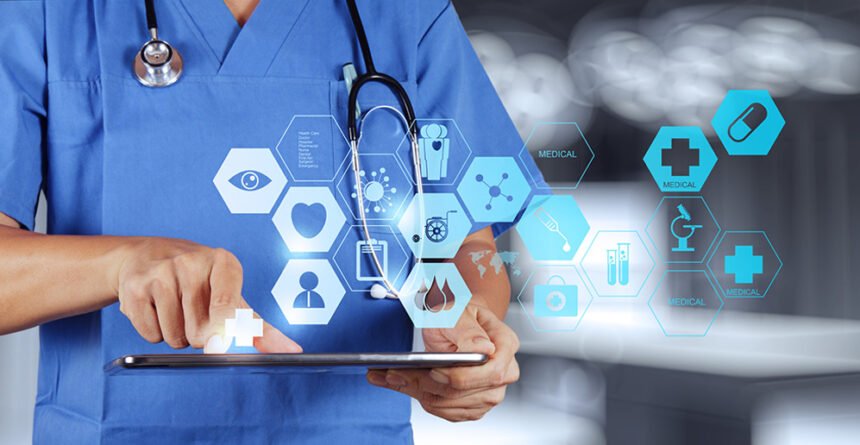Technology is without doubt the driving force behind healthcare improvements. As technology improves on a daily basis, new developments infiltrate the lives of people constantly.
As technology improves daily, new developments are infiltrating people?s lives constantly. Whether it is the way people shop, how they communicate with friends, the job one does, or the way of traveling, technology is transforming people?s behavior. A great example for instance, is healthcare. Information gathering breakthrough, treatments, research and communications have given medical or healthcare providers new tools to work with as well as fresh ways of practicing medicine.
Technology is the Driving Force Behind Healthcare Improvements
Technology is considered as the driving force behind healthcare improvements. Health informatics graduates no doubt would agree that technology is affecting numerous aspects of people?s lives as breakthroughs in research, collection of data and treatments enable medical providers to use new tools and look for innovative and new ways of practicing medicine into the future.
Medical Technology
Medical technology is a wide industry where innovation plays an integral role in health sustainability. Areas such as pharmaceuticals, biotechnology, information technology, developing medical equipment and devices and more all have made significant contributions to boost the health of people all over the world. From small innovations such as ankle braces and adhesive bandages, to bigger, more complex technologies like MRIs, robotic prosthetic limbs and artificial organs, technology undoubtedly made an incredible impact on the field of medicine. How Technology Impacts Healthcare
- The web has become a major source of medical information. More and more people use the internet to research their medical concerns. This means not just looking up symptoms, but exploring medicines and treatments on the web as well. Although it?s never a good idea to skip out the door entirely, the web made patients more empowered on making decisions on what to do next.
- Better treatment, less suffering. The most obvious way that technology has changed healthcare is through providing new medicines, machines and treatments, which save lives and boost the chance of recovery for billions of people. Sophisticated medical practices not only help patients heal directly, but new technology also has enhanced research, thus experts could make healthcare much more effective.
- Healthcare facilities are reaching patients via social media. It?s easy to see how doctor offices, public clinics and even research facilities could take advantage of social media tools to reach bigger populations. There is even evidence that they?re going above and beyond. Healthcare facilities, hospitals in particular use social media to establish contact with their patients, launch public awareness campaigns, answer queries on practices and do community outreach. Some sophisticated website offer instant chats with doctors and nurses on medical concerns and reminders for people to get regularly required vaccines and tests.
- Enhanced patient care and worker efficiency. IT made patient care more reliable and safer than before. Doctors and nurses use hand-held devices to record the medical history of patients and check that they administer the right treatment. Lab tests results, vital signs records and medicine orders, all are electronically put into a main database that could be referred to later. As more institutions are adopting electronic health records, there is easier access for patients to their information so they understand what?s being done to them.
- Doctors are easier to reach and are better at their jobs. With a touch of a smart phone, doctors could access hundreds of thousands of pages of medical textbooks. Furthermore, they could also use online medical databases to look up case studies easily and check out a detailed history of a patient. Technology enabled doctors to use texts, email, videos and conference facilities for consulting colleagues all over the world. The practice, called telemedicine, is particularly useful for patients and doctors in rural areas.
- Online databases could predict medial trends accurately. By health information analysis that users search for online, search engines like Google are able to predict medical trends accurately, such as flu outbreaks. The breakthrough helps medical experts quickly respond to outbreaks and take preventive measures as well. And as more people use the internet to search for their medical issues, the internet giants have even more information to apply to scientific studies.
Software Technology Boosts Healthcare and Disease Control
Development of certain software programs means that the WHO or World Health Organization has been able to group illnesses, the symptoms and causes into a massive database that encompasses over 14,000 individual codes. The resource lets medical professionals as well as medical researchers to keep track, retrieve and use valuable data in the fight to control and even prevent diseases and provide better health care in general. Moreover, software plays a pivotal role in keeping tabs of procedures and using billing methodologies that not only minimize paperwork levels, but enable practitioner to use data to boost quality of care and all around efficiency as well. It?s a wonderful thing that technological innovations in the healthcare field continue to provide medical providers new ways of improving the quality of care to patients all over the world.







